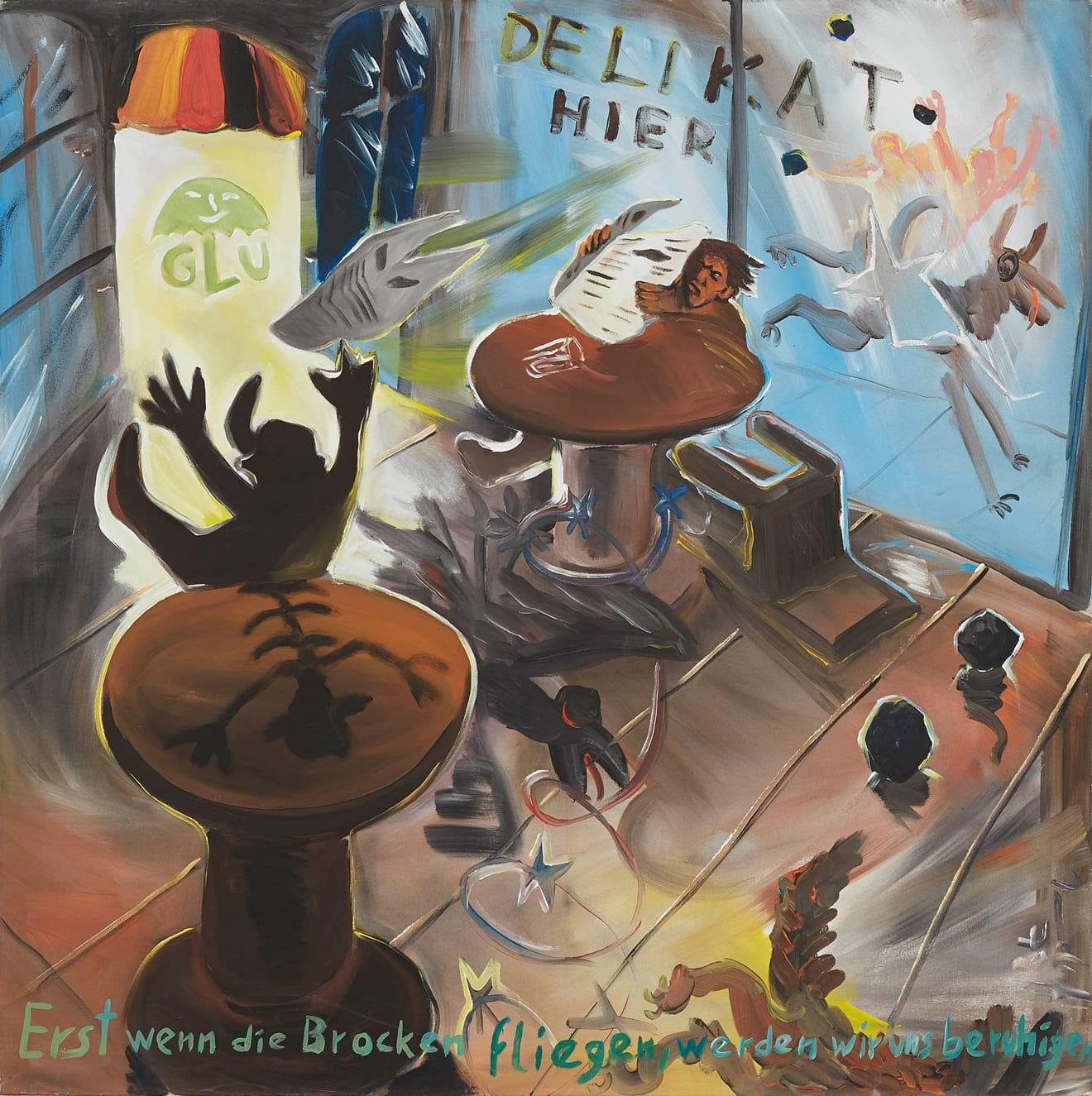Michael Werner Gallery is pleased to present a selection of important paintings by Jörg Immendorff for Art Basel’s Online Viewing Room “Portals”, opening Wednesday 16 June. Immendorff is one of the most influential German artists of the 20th Century, known for a groundbreaking body of work that challenged both artistic and political establishments.
The Art Basel Online Viewing Rooms can be accessed here. The VIP preview will begin Wednesday, June 16. Public days will follow from June 17 at 2PM CET through Saturday June 19 at midnight CET. Additional material can be found on our website: please click here to see more.
Jörg Immendorff (1945-2007) began his formal artistic training at the Kunstakademie Düsseldorf and in 1964 Immendorff was admitted into the class of Joseph Beuys, then the most important artist working in Germany and a figure of profound influence for an entire generation of German artists. Immendorff’s relationship with Beuys marked the beginning of an intensely productive period for the young artist, who was deeply affected by the Beuysian notion that art can and should play a wider role in society. Joseph Beuys was a dynamic and polarizing figure who inspired Immendorff to challenge the traditions of fine art and the art academy. In 1966, Immendorff painted the words “Hört auf zu malen” (“Stop Painting”) on a canvas; it was a major turning point in the artist’s early work and philosophy. “With this picture,” he explained later, “I wanted to express my unease about a type of painting that is hermetic and does not take up any position in relation to external problems.” Inspired by Immendorff and featuring his work, an exhibition titled “Stop Painting” is currently on view at the Fondazione Prada, Venice.
In 1970, Immendorff joined the League Against Imperialism, pledging to direct his creative endeavors to the service of the German Maoist party. Disillusioned by the outcome of European political events of the late 1960s, and increasingly dissatisfied with his role as an artist, Immendorff sought to produce paintings for and about the working masses. These works attack capitalism and the domination of the proletariat, expose and question the clash of aesthetic interest with political commitment, and refute the clichés and myths of avant-garde art production. In contrast to Immendorff’s playfully anarchic paintings and actions of the previous decade, his works of the early seventies illustrate the artist’s intense exploration into the possible melding of aesthetic and political aims.
Political issues and the role of the individual in society continued to be important themes for the artist through his career, and this presentation includes several works from Immendorff’s most celebrated Café Deutschland series, which he began in the late seventies and continued for several years. These works address questions around German identity and world history in a conceptual cabaret-nightclub setting, featuring a broad cast of political and cultural figures. At Café Deutschland, the complexities of a divided Germany could be explored and reconciled.
Jörg Immendorff has been exhibited internationally since the 1970s; important exhibitions include Museum Boymans-van Beuningen, Rotterdam; Municipal Museum, The Hague; Museo Rufino Tamayo, Mexico City; Kunstmuseum, Bonn; Kunsthalle Düsseldorf; Neue Nationalgalerie, Berlin; Van Abbemuseum, Eindhoven, Haus der Kunst, Munich, and Museo Reina Sofia, Madrid, among many others.
